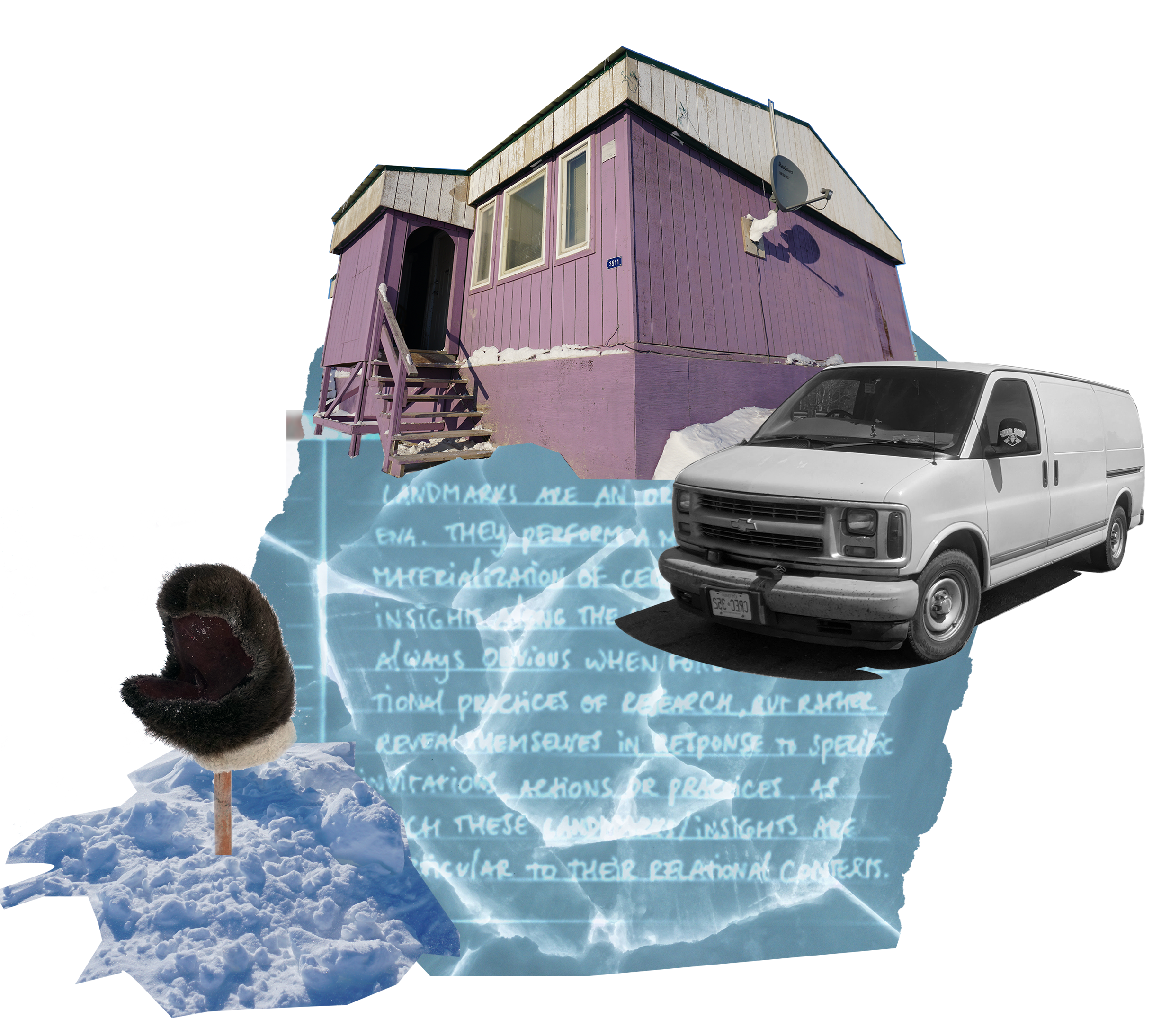Multiple Sites of Enunciation: Difference between revisions
No edit summary |
No edit summary |
||
| Line 5: | Line 5: | ||
Acknowledging the tension of our differences, when it comes to our entanglements within the overarching polar bear management and monitoring apparatuses, rather than attempting to erase them, aligns with the principles of ethical engagement. Willing partners are to ‘appropriately, correctly, and respectfully acknowledge the "that's me" and the "that's you" of their differentiated worldviews' if they are to enter into ethical relationships with each other (Institute for Integrative Science & Health, 2013b). Such acknowledgement of differences enables parties to respects the integrity of each voice and avoid 'cultural confusion'. Cultural confusion is a state in which ‘we no longer know what informs each of our identities and what should guide the association with each other’ (Ermine, 2007 p. 197 ; see also Blackfoot elder Reg Crowshoe in AER, 2014). | Acknowledging the tension of our differences, when it comes to our entanglements within the overarching polar bear management and monitoring apparatuses, rather than attempting to erase them, aligns with the principles of ethical engagement. Willing partners are to ‘appropriately, correctly, and respectfully acknowledge the "that's me" and the "that's you" of their differentiated worldviews' if they are to enter into ethical relationships with each other (Institute for Integrative Science & Health, 2013b). Such acknowledgement of differences enables parties to respects the integrity of each voice and avoid 'cultural confusion'. Cultural confusion is a state in which ‘we no longer know what informs each of our identities and what should guide the association with each other’ (Ermine, 2007 p. 197 ; see also Blackfoot elder Reg Crowshoe in AER, 2014). | ||
ICC's Protocol 2 calls for the recognition of Indigenous Knowledge in its own right. Its third directive states that "Indigenous Knowledge must not be translated, integrated into, or validated by science – Recognition, trust and respect must be given to the unique contributions of Indigenous | <div class="next_choice"> ICC's Protocol 2 calls for the recognition of Indigenous Knowledge in its own right. Its third directive states that "Indigenous Knowledge must not be translated, integrated into, or validated by science – Recognition, trust and respect must be given to the unique contributions of Indigenous Knowledge as a way of knowing. With a clear understanding that Indigenous Knowledge holds its own methodologies and objectives, one can begin to appreciate the importance of not attempting to translate or integrate one source of knowledge into the other."</div> | ||
Knowledge as a way of knowing. With a clear understanding that Indigenous Knowledge holds its own methodologies and objectives, one can begin to appreciate the importance of not attempting to translate or integrate one source of knowledge into the other." | |||
<span class="return to-cut-1 link" data-page-title="Multiple Voices" data-section-id="1" data-encounter-type="return">[[Multiple Voices#Testimonial Reading|Return to Cut 1: Voices of Thunder]]</span> | <span class="return to-cut-1 link" data-page-title="Multiple Voices" data-section-id="1" data-encounter-type="return">[[Multiple Voices#Testimonial Reading|Return to Cut 1: Voices of Thunder]]</span> | ||
Revision as of 19:11, 26 January 2025

When it comes to the topic under address in the "Voices of Thunder" testimonies: the phenomena of polar bear harvesting quota- we agreed that it would be important for the differences in positionality of the BearWatch scientists and the Gjoa Haven community members to be explicitly acknowledged in some of our co-creative output.
Acknowledging the tension of our differences, when it comes to our entanglements within the overarching polar bear management and monitoring apparatuses, rather than attempting to erase them, aligns with the principles of ethical engagement. Willing partners are to ‘appropriately, correctly, and respectfully acknowledge the "that's me" and the "that's you" of their differentiated worldviews' if they are to enter into ethical relationships with each other (Institute for Integrative Science & Health, 2013b). Such acknowledgement of differences enables parties to respects the integrity of each voice and avoid 'cultural confusion'. Cultural confusion is a state in which ‘we no longer know what informs each of our identities and what should guide the association with each other’ (Ermine, 2007 p. 197 ; see also Blackfoot elder Reg Crowshoe in AER, 2014).
